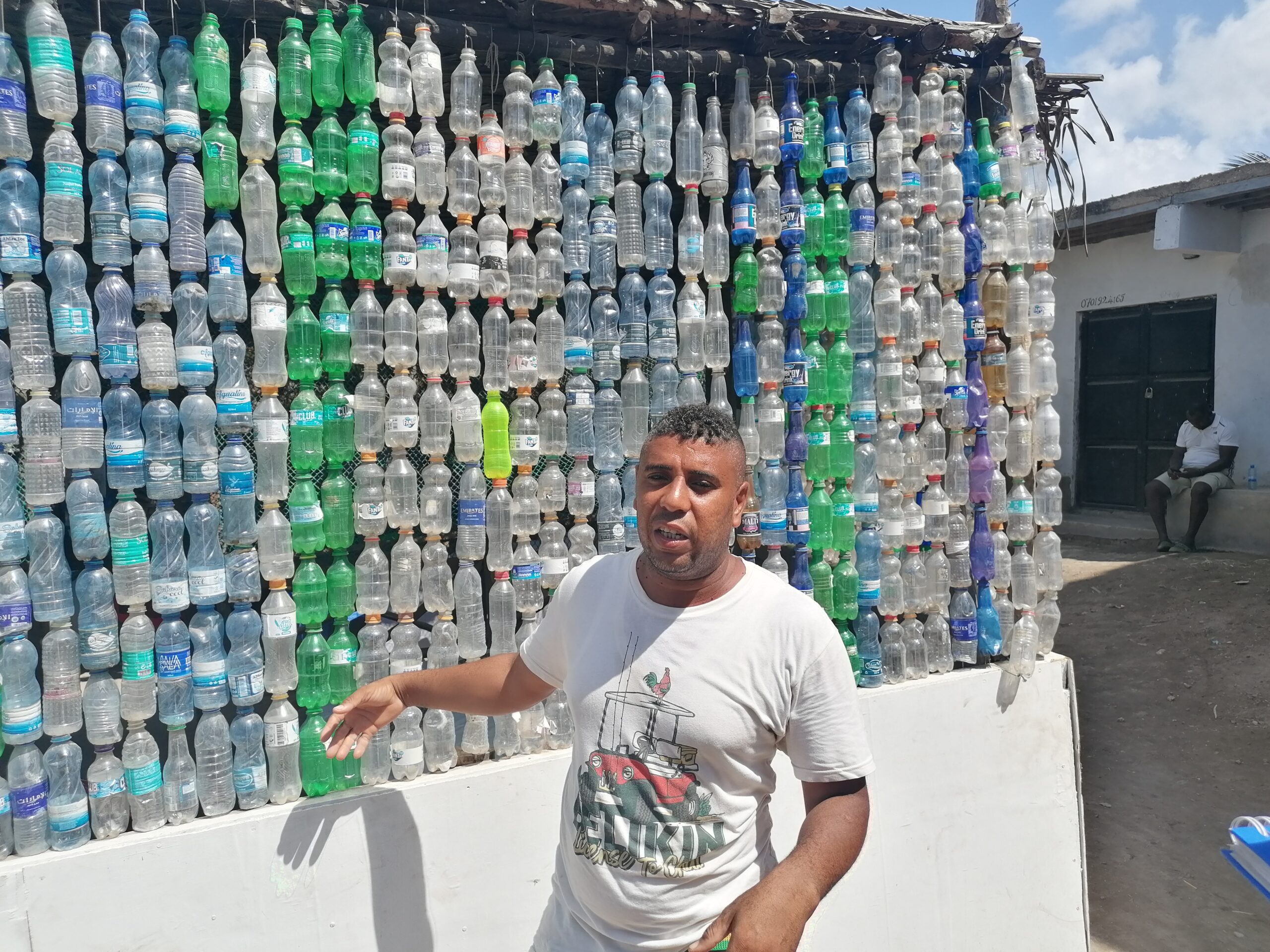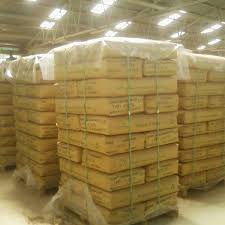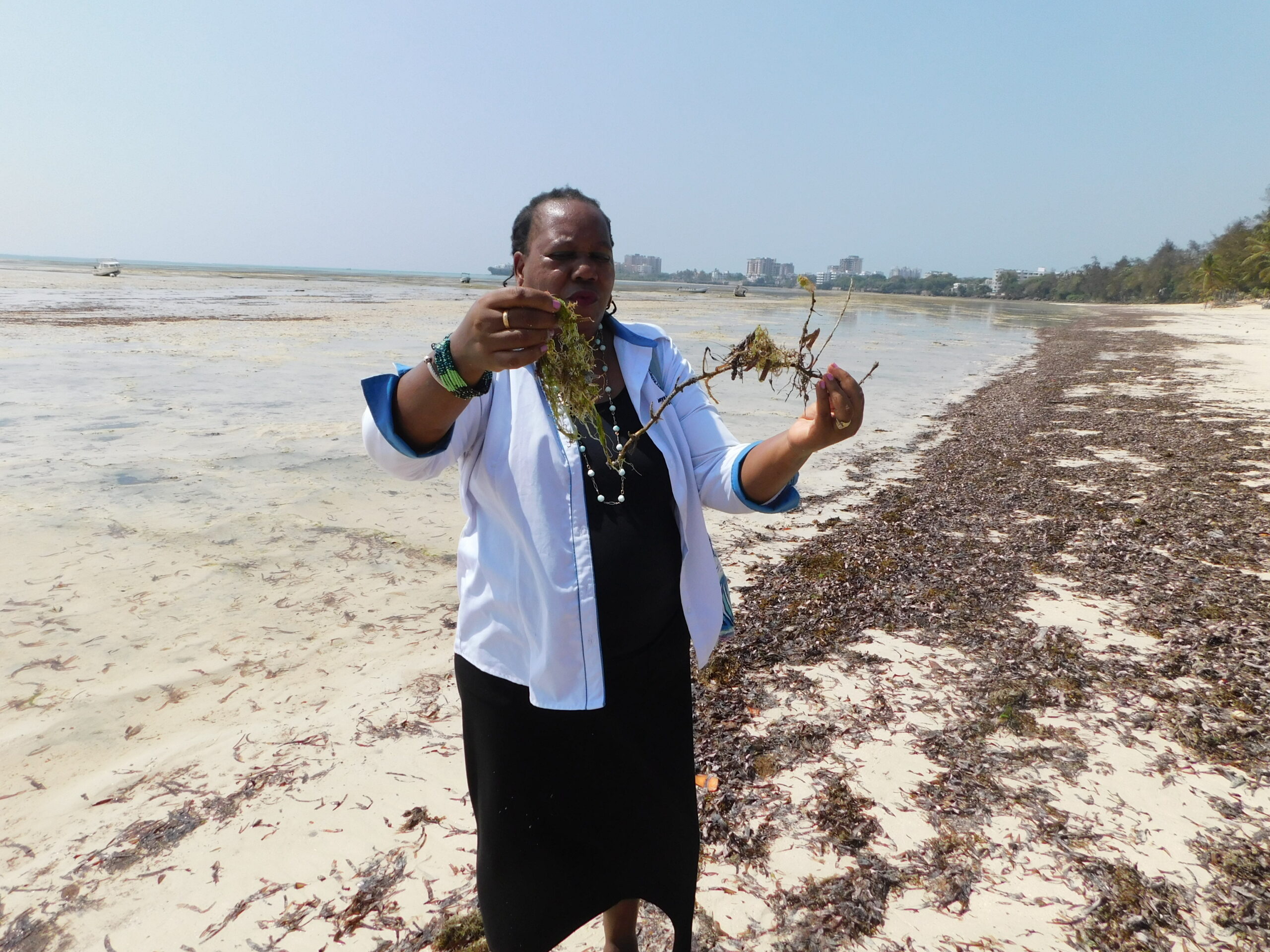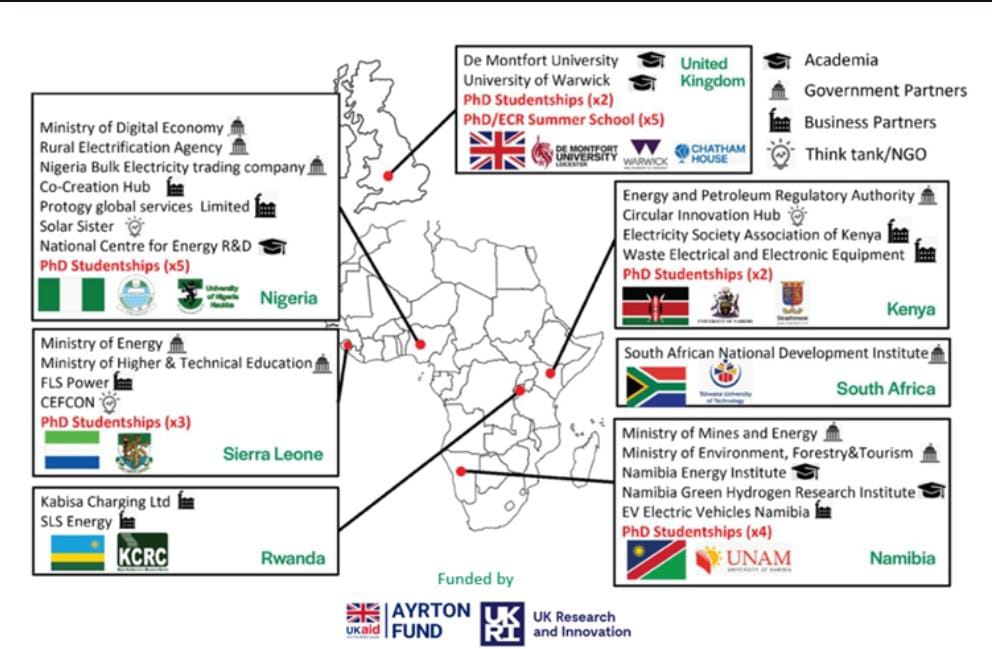Mohammed Hussein explaining to visitors how they made the roof with the plastic bottles. Photo Credit, Ruth Keah.
In the heart of Pate village in Lamu County lies an enchanting restaurant that captures the imagination with its unique construction. Built with wooden foundations and adorned with a stunning array of empty plastic bottles of various colors, the café is a testament to creativity and environmental consciousness.
These plastic bottles, meticulously lined up vertically, not only provide an artistic flair but also allow light and a refreshing breeze to filter through, offering visitors a serene and airy atmosphere to enjoy the coastal winds.
This remarkable restaurant was brought to life by the Pate Resources and Tourism Initiative (PRATI), a group dedicated to the planting and conservation of mangroves and the preservation of the environment in Pate village. The empty plastic bottles used in the restaurant were collected from various locations, including land and seashore, showcasing the community’s commitment to tackling pollution.
One of the most noxious forms of pollution in the wake of climate change is linked to plastic. According to the United Nations Environment Programme (UNEP), Plastic pollution and marine litter have emerged as pressing environmental challenges of our time, impacting the health of our oceans and ecosystems.
Plastics make up a significant portion of marine litter, with estimates suggesting that an equivalent of 2,000 garbage trucks full of plastic are dumped into the world’s oceans, rivers, and lakes daily, and more than eight million metric tonnes of plastic enter the oceans every year.
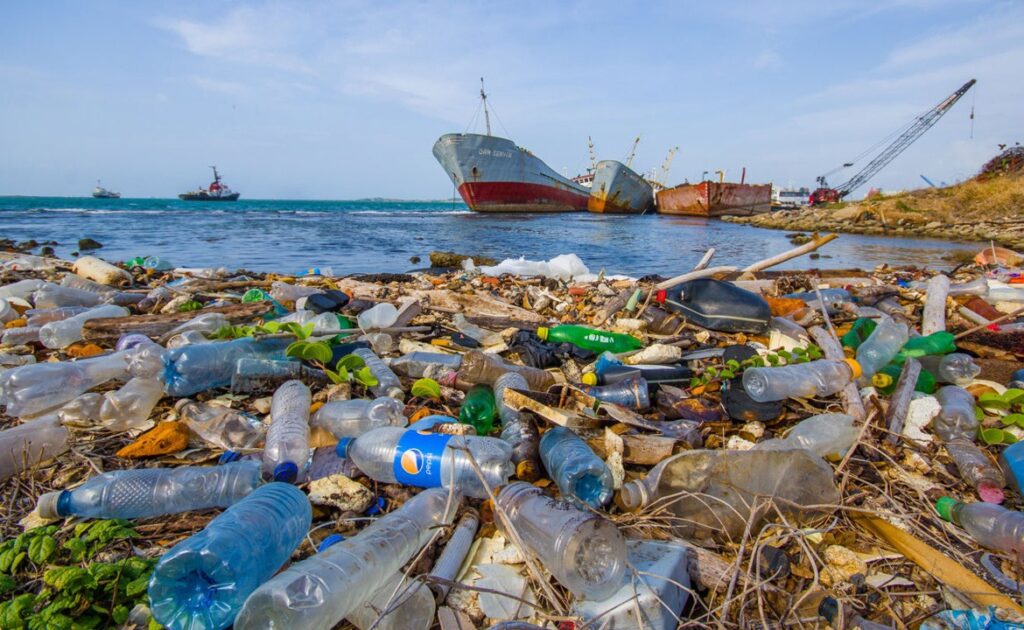
Plastic trash in oceans. Photo Credit, Climate lens news.
To address this pressing environmental issue, PRATI initiated a project to gather empty plastic bottles, purchasing them from community members who volunteered to clean up the discarded bottles. Each bottle was bought for ten shillings. When the collection of bottles grew substantially, the group decided to put them to good use by constructing the restaurant. After cleaning the bottles, they carefully assembled and secured them to create a wall, as explained by Mohammed Hassan, a member of the group.
“Plastic bottles were scattered everywhere, in the ruins of houses and even in the seashore, so we decided to collect them and pay community members who volunteered to clean the environment. Later, we came up with the idea to build this restaurant using the empty bottles,” said Mohammed.
The restaurant can accommodate up to 30 guests at a given time and serves visitors who come to the village for various reasons.
“We receive visitors about two to three times a month, and the money collected is shared among the members, with the rest being reinvested into the group for further development’’, he said.
Despite the ongoing challenge of securing funds for the restaurant daily operations, the group aims to build a larger floating restaurant in future.
According to UNEP, combating plastic pollution in the marine environment is imperative as it safeguards ecosystems in particular marine from irreversible damage and preserves biodiversity. It also prevents the proliferation of microplastics through the food chain, protecting human health.
Dorothy Otieno, the Programme Officer at the Center for Environment Justice and Development (CEJAD), highlights a pressing issue that spans across global, regional, and national levels. CEJAD, an accredited NGO and observer by the UN Environment (UNEP) and international networks such as IPEN, the Global Alliance for Incinerator Alternatives, Break Free from Plastics Movement, World Alliance for Mercury-Free Dentistry, and the Zero Mercury Working Group (ZMWG), is deeply involved in addressing environmental concerns.
Otieno emphasizes that plastic pollution significantly affects both human life and marine ecosystems. She explains that some plastics contain chemicals which are persistent organic pollutants, which linger in the environment for extended periods. She said, the immediate health impacts may not be evident, but they manifest over time.
“People who like fish are particularly vulnerable to pollution because fish ingest the plastics discarded in the ocean. When they consume these fish, the toxins enter their bodies,” Otieno explains.
Furthermore, she notes that in marine environments floating plastics can block sunlight from reaching photosynthetic algae and seagrasses, crucial sources of oxygen and food for many marine ecosystems. Plastic debris can also smother coral reefs, disrupting the delicate relationships between corals and the myriad of species that rely on coral ecosystems.
With many initiatives carried out by local communities to address this pressing environmental issue, Otieno calls for global cooperation to tackle plastic pollution, stressing that no single nation can solve the issue alone, as the ocean is a shared resource and plastics often travel across borders via ocean currents.
“There is a need for a legally binding instrument, such as the plastic treaty, to be implemented. This includes ensuring that all single-use plastics are eliminated, promoting the use of reusable plastics without harmful chemicals, and keeping our oceans free from plastic pollution,” she concludes.
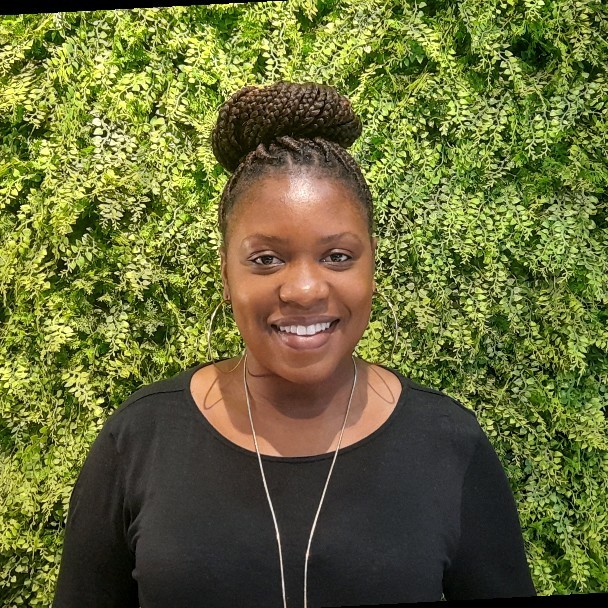
Dorothy Otieno, the Programme Officer at the Center for Environment Justice and Development (CEJAD). Photo Credit, Dorothy Otieno.
Sustainable Development Goal number 12 seeks to have responsible consumption and production which includes targets focused on environmentally sound management of all waste through prevention, reduction, recycling and reuse.
Dennis Otieno is a marine researcher and conservationist with a passion for protecting ocean ecosystems and educating communities on the importance of preserving the oceans for future generations. He noted that plastic has many harmful effects on the marine ecosystem.
“If plastic ends up in the ocean and fish consume it, they might die. Additionally, the chemicals in the plastic can transfer to humans when they eat the fish, potentially causing diseases like cancer,” he said.

Dennis Otieno, Marine researcher and Conservationist. Photo Credit, Dennis Otieno.
He emphasized that it is everyone’s personal responsibility to protect the environment. He encouraged youth groups and the community in general to innovate and recycle plastic waste for a cleaner and better environment.
“Plastic takes a long time to decompose—up to 500 years and it can remain in the ocean for a long time. Carelessly discarding it is very dangerous to the environment, we urge everyone not to litter and to find innovative ways to recycle plastic waste,” he concluded.

